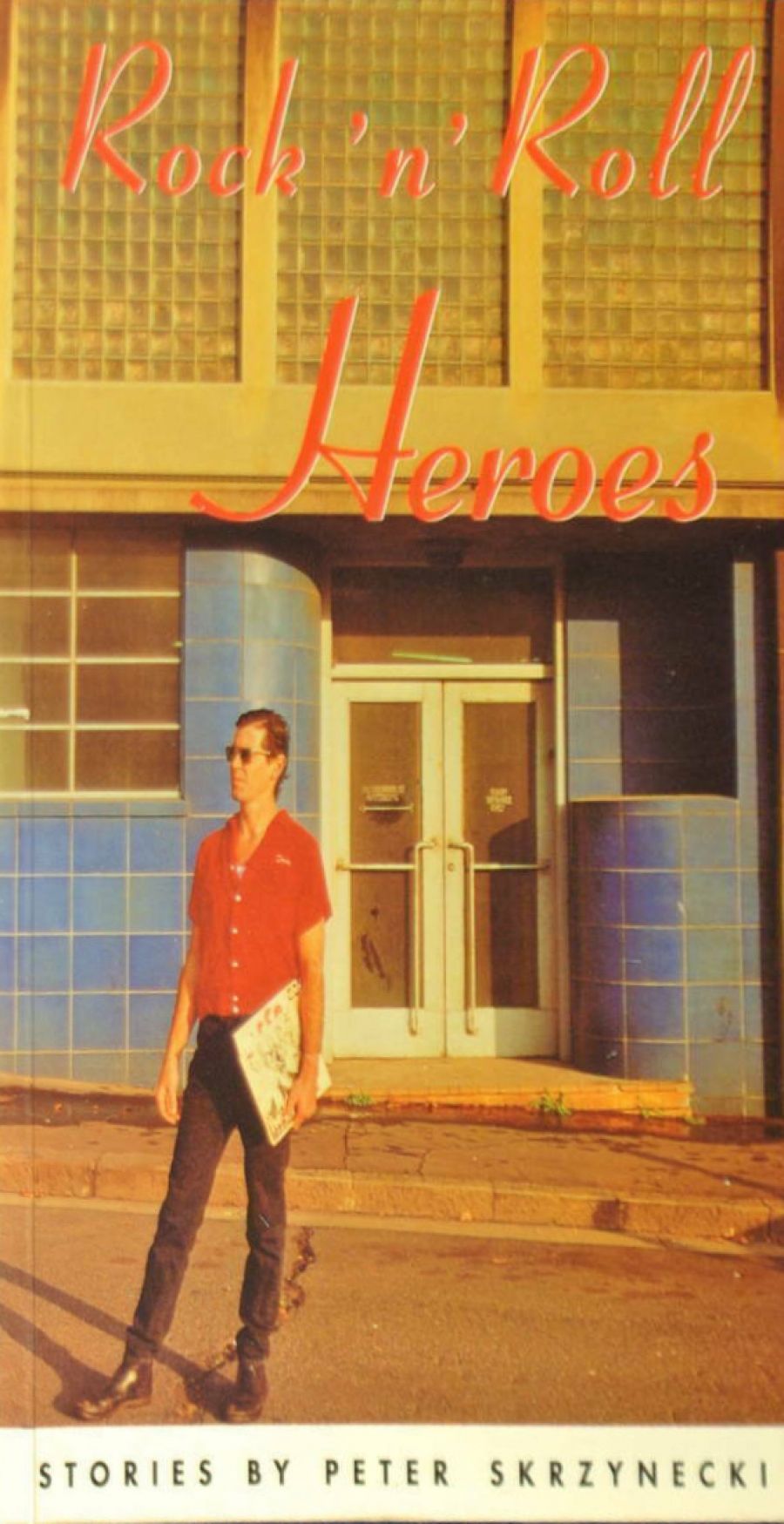
- Free Article: No
- Contents Category: Short Stories
- Review Article: Yes
- Online Only: No
- Custom Highlight Text:
For its double epigraph, Rock’n’Roll Heroes combines a couple of lines of Midnight Oil’s Hercules – ‘my life is a valuable thing / I want to keep it that way’ – with six wonderfully numinous sentences from Thomas Traherne:
- Book 1 Title: Rock ‘n’ Roll Heroes
- Book 1 Biblio: Hale & Iremonger, $14.95 pb
Traherne’s vision serves to introduce the multicultural component in this collection of stories, the majority of which deal with the experience of young male Polish characters who emigrated after the Second World War to become ‘new Australians’. Displacement and new beginnings, childish innocence and the onset of adolescence, rites of passage, the role of the family in all of this: these arc the themes of stories that look back to the 1950s in Sydney’s western suburbs.
Other stories place emphasis on the way a middle-aged narrator is momentarily thrown back to early adolescence and in the process comes to terms with guilt, anomie, the need he has as an adult to re-establish his bearings.
‘The Girl in the Puffed-Sleeves Jumper’ is a tale of childish cruelty and displacement told by a teacher whose Polish-Australian background sharpens his sense of the Girl’s pain. The narrator of ‘The Prophetess’, Dr Gadman (anglicised from its Polish original, Gabyrnoowcz), faces the mystery of death.
I first read ‘The Smallest Photo’ when it appeared in a recent issue of Island. I enjoyed the way diverse memories of growing up – a special boyhood friendship between young migrants, fights in the playground, a pederastic Catholic priest – were brought together in the wondering and finally accepting thoughts of the narrator. He does not throw away the smallest photograph in his collection even though it was taken by the priest and carries dark associations.
Other stories in the collection also make an impression. The title piece, ‘Rock’n’Roll Heroes’, is about survivors from the 1950s and 1960s, men and women like the discs they pore over ‘scratched, cracked and warped a little by time – but still living’, and the narrative is interspersed with lyrics from the period. ‘Mulberries’ are emblematic of sexual knowledge in the story under this title, set in the Duck Creek local. ‘Going to the Pictures’ effectively juxtaposes the mythology of 1950s films and comics, Superman, Phantom, with the sharper acquisition of Truth, Justice and the new Australian way.
However, a good volume of short stories should have variety and my principal reservation about Rock’n’Roll Heroes is that stories which read well enough individually become monotonous when presented together. This is partly a matter of content and setting. I got tired of reading about Duck Creek and its now urbanised environs in Sydney, about 1950s rock’n’roll hits (good in the title story but unfortunately de rigueur in later ones as well) and about children inspecting each other’s ‘prepubescent genitals’.
In addition, a number of stories very obviously follow the same psychic pattern, according to which a painful, shocking or disturbing memory liberates previously hidden feelings within the central male character and he achieves some sort of personal resolution. Many of the stories include a short crisis passage when the narrator lapses out of things and this may precipitate an experience of spiritual affirmation: ‘something inside me said a prayer of thanksgiving to the God of our childhood that I had trusted so implicitly’.
There is a tendency to overwrite and to write loosely as in a paragraph such as the following, from ‘Mulberries’:
We children called the underground canal ‘The Darkies’. I never discovered the origins of this name, nor would I ever attempt to do so. It would destroy the mystery, the allurement and secrets of the past and, with it, I believe, the intangible beauty of early puberty – the body still contending with a puerile sense of reckless adventure and the sensations of new stirrings beginning to manifest themselves in fears, dramas and waking realities.
Conciseness and economy are precious qualities in the short story form and they are absent in this passage and elsewhere in the collection.
I also felt that the explicit supplying of a ‘moral’ or meaning at the end of some stories tended to narrow and deaden what had gone before.
Rock’n’Roll Heroes is distinguished by a gentle and mellow subjectivity through which threatening and sometimes violent experiences are mediated and reviewed. I was left with the impression of a book that tries to bring together fiction and auto/ biography and finally loses itself somewhere in between.


Comments powered by CComment